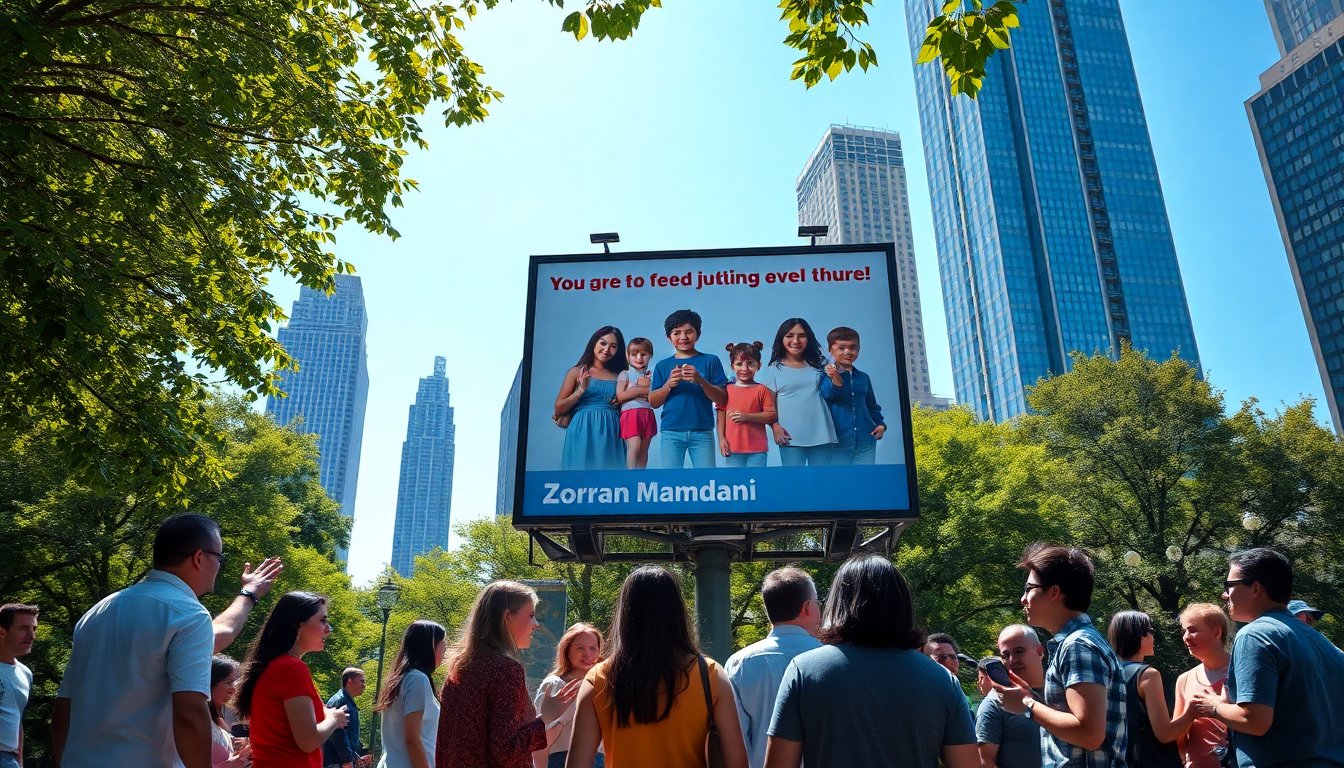Table of Contents
The political landscape in New York City is currently dynamic as mayoral candidate Zohran Mamdani navigates the intricacies of modern campaigning. As part of his strategy, Mamdani has effectively utilized social media to connect with voters. However, this approach has not been free from controversy. Recently, he faced backlash for incorporating children into his campaign advertisements, prompting discussions about the ethics and implications of involving youth in political discourse.
Understanding the Context of Mamdani’s Campaign
At just 33 years old, Zohran Mamdani has emerged as a key figure in the New York City mayoral race. His platform is founded on progressive ideals, including proposals for a $30 minimum wage and stringent rent control measures. Mamdani’s campaign is also marked by his adept use of social media, which he leverages to engage a younger demographic. This strategy has positioned him as a prominent figure in the digital political arena, where engagement and virality can significantly impact public perception.
Nevertheless, this same social media strategy has attracted criticism. Following the announcement of a statewide ban on cellphone use in public schools, Mamdani featured videos of children endorsing his candidacy. This decision sparked a debate regarding the appropriateness of using minors to promote a political agenda, particularly in light of his comments about the detrimental effects of social media on youth interactions.
The Impact of Social Media on Public Perception
The digital age has transformed political campaigning, enabling candidates to reach their audiences directly and instantaneously. For Mamdani, this translates to creating content that resonates with voters, especially younger individuals who are more inclined to engage with social media platforms. However, this strategy is fraught with challenges. Critics contend that featuring children in his campaign videos contradicts his stance on the dangers of social media and its effects on young people.
In a recent Instagram post, Mamdani expressed that he was fortunate to grow up before social media reshaped youth interactions. Yet, the contrast between this sentiment and his campaign tactics has raised concerns. One follower pointed out the irony, questioning the ethics of using children in promotional materials while simultaneously criticizing the influence of social media on their lives. This inconsistency has resulted in a growing chorus of critics calling for a reevaluation of how candidates engage with youth in their campaigns.
Political Implications and Future Prospects
The controversy surrounding Mamdani’s use of children in his campaign exemplifies a broader trend in modern political strategy. As campaigns increasingly depend on social media for outreach, the ethical implications of such tactics are coming under scrutiny. This situation raises vital questions regarding the responsibilities of candidates to safeguard the interests of minors while pursuing political support.
As the mayoral election approaches, navigating these complex dynamics will be crucial for Mamdani and his competitors. The challenge lies in achieving a balance between effective campaigning and ethical considerations. Moving forward, Mamdani’s campaign must not only address the backlash it has encountered but also adjust its strategies to ensure they resonate positively with the electorate.


